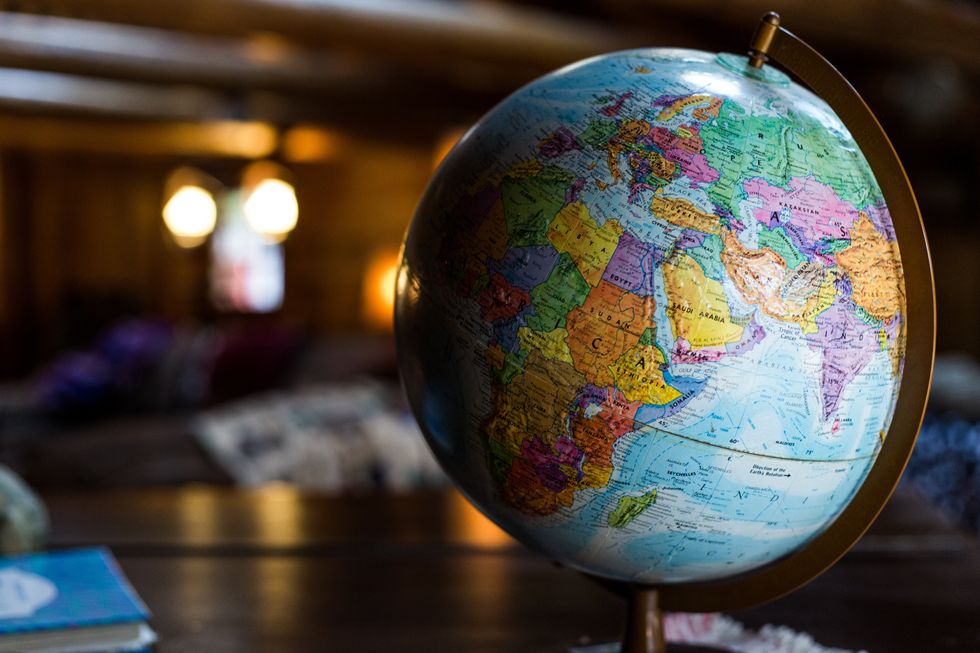These days, the term "Caucasian" is found everywhere, from news reports and police bulletins to daily conversation. It's widely considered the politically correct way to refer to white people. But "Caucasian" is an erroneous term. And, although many people use it to avoid sounding racist, the continued usage of this term actually perpetuates racism and Eurocentrism.
Caucasian, literally, refers to people native to the Caucasus, but it has become interchangeable with any number of 'White' populations, most of whom trace their ancestry to Europe. One gets the feeling that the term 'White' fell out of favor and was replaced by 'Caucasian' much like 'Black' was replaced by 'African-American'.
But the roots of such terminology are a bit disturbing; it was postulated that the natives of the Caucasus exhibited the idealized physical appearance so the Caucasus were believed to be the birthplace of mankind. The logic behind this idea — the assumption that Whites exhibit the best physical appearance — is implicitly racist. Additionally, we now know our species first appeared in Africa, so the biology isn't any good either.
The connotations of the term Caucasian along with the geographical absurdity of using that term to describe all Europeans or Whites are the two main reasons we should abandon the term.
The use of Caucasian to mean white was popularized in the late 18th century by Johann Friedrich Blumenbach, a German anthropologist, who decreed that it encompassed Europeans and the inhabitants of a region reaching from the Obi River in Russia to the Ganges to the Caspian Sea, plus northern Africans. He devised a flawed classification system that divided humans into five races—Caucasian (white), Mongolian (yellow), Malayan (brown), Ethiopian (black), and American (red).
He chose it because the Caucasus was home to "the most beautiful race of men, I mean the Georgians," and because among his collection of 245 human skulls, the Georgian one was his favorite, as written by Nell Irvin Painter, a historian who explored the term's origins in her book "The History of White People." Blumenbach believed that the Caucasian race was the "most beautiful" and oldest, ideas that support white supremacy. While Blumenbach's four other racial terms are considered obsolete, "Caucasian" has sadly survived.
It's "highly unlikely" that white people came out of the Caucasus region in Eurasia. There are scholarly disagreements about how and when some of our dark-skinned ancestors developed lighter skin, but research suggests humans moved across the Asian and European continents about 50,000 years ago. Some anthropologists think that natural selection would have favored lightening mutations as humans moved away from the equator and faced a diminished threat from ultraviolet exposure. In this case, it's possible that light skin would have evolved in many places independently.
People of Indian descent technically fall under the category of "Caucasian", but they aren't considered white (and have historically been denied the same rights as white people in Canada and other countries). The U.S. Supreme Court confirmed the distinction in a 1923 ruling, which denied U.S. citizenship to Indian-American writer Bhagat Singh Thind.
Usage of the pseudoscientific term "Caucasian" reinforces the erroneous notion that there is a scientific basis for racial hierarchies. It is widely accepted that racial hierarchies are still with us today, and this concept is peppered throughout writings on "race" and racism. Claims about racial hierarchy matter because a great deal is at stake.
Groups which successfully claim an oppressed status can gain both moral and material capital. Belief in a top-down hierarchy can also shape group relations, public policy formation, and political alliances. The question of whether some groups are worse off than others is highly pertinent at a time when there is growing recognition of multiple forms of racisms and racial oppression.
Since the scientific derivations of these terms are still being debated, it is very difficult to know whether you are using terms correctly when referring to yourself as a Caucasian or any other race for that matter. There should never be a need for a person to define themselves based on their race, or for anyone to differentiate on the basis of race. Hence we should try and keep the usage of these terms to a minimum.

















